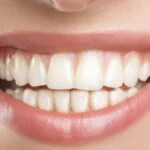Have you or a loved one found yourself trapped in the throes of drug or alcohol abuse? Know that you aren’t alone. Sometimes, the only thing you’ll need to see your or your family member’s way back to a full, healthy life is treatment.
Alcohol rehab refers to any sort of recovery intervention for a problem that involves alcohol. Drug rehab, on the other hand, applies to any problem involving drugs.
Keep reading to learn everything you need to know about alcohol rehab and drug rehab services, including what to look for when choosing the right one for you or your loved one.
Assessment & Diagnosis
Assessment and diagnosis are an integral part of the addiction recovery guide. In order to provide the best possible care, it is important to assess the mental and physical condition of the person seeking recovery. This includes:
- mental health evaluation
- substance abuse history
- physical health evaluation
In addition, a comprehensive assessment of lifestyle changes, performance abilities, and family relationships can help in identifying underlying issues that need to be addressed and addressed as part of the treatment plan.
After the assessment process is over, the professionals involved in the recovery process can then make a diagnosis and identify the specific problems associated with substance abuse or addiction.
Once this is finished, an appropriate treatment plan can be established and tailored to the specific needs of the individual in recovery.
Tailoring a Recovery Plan
Tailoring a Recovery Plan approach starts with a careful assessment that centers on the individual’s needs. This includes looking at past and current medical and psychological health status, as well as existing resources.
An individualized plan takes the addict’s unique needs into consideration, allowing for an individualized approach to recovery.
This could include everything from traditional drug and Alcohol services to mental health counseling, family therapy, nutritional consulting, and therapeutic modalities such as:
- yoga
- art
- music therapy
Once the plan is tailored to the individual’s needs, it can be implemented and monitored, allowing for adjustments to be made as the process of recovery unfolds.
A key element in any successful recovery plan is continued support. Group sessions, peer and family support, and continued care provide ongoing support, helping with relapse prevention and increasing the chances of success.
Types of Rehab Services Available
There are several types of rehab services available to facilitate successful addiction recovery. Outpatient services are offered in a clinical setting and may involve individual or group meetings as well as psychotherapy.
This type of service is flexible, as clients are allowed to reside at home during the process and attend treatment sessions several days a week. Inpatient services, on the other hand, involve 24-hour care and supervision at a specialized facility and provide the client with round-the-clock support for their addiction recovery needs.
Intensive outpatient programs offer part-time treatment services, which often use a combination of individual and group sessions. Other services, such as faith-based rehab, focus on integrating religious and spiritual practices as a part of the treatment.
Holistic rehab centers also focus on providing the patient with natural methods of healing, such as yoga and meditation. Through these various therapy types, along with help from attentive and experienced professionals, those suffering from addiction can find the support, care, and guidance needed to break their cycle and recover.
Short-Term and Long-Term Recovery Goals
Addiction recovery is an ongoing process that involves setting both short-term and long-term goals. Short-term goals typically focus on addressing immediate needs and minimizing cravings to reduce the chances of relapse.
This is often accomplished through forms of therapy like cognitive behavioral therapy, behavior modification, and support groups. Long-term goals usually involve finding ways to build better choices and more meaningful relationships.
These may include developing healthy coping skills, developing a strong sense of identity, and finding ways to deal with social and interpersonal distractions. Ultimately, a successful rehab program should involve both short-term and long-term strategies.
Through comprehensive care, individuals can learn to manage their recovery and maintain a drug-free lifestyle. With the right combination of rehab services, long-term recovery goals are achievable and maintainable.
The Role of Support Groups in Recovery
Support groups play a major role in addiction recovery. Through joining a support group, individuals receive support from those who have experienced similar hardships and are committed to understanding their situations.
These groups allow for the sharing of experiences, thoughts, and feelings in a safe and non-judgmental environment. Furthermore, members of these groups can benefit from hearing stories of hope and success from those who have managed to remain sober for extended periods of time.
It is very helpful to have someone to talk to when there are difficult periods of recovery. Support groups provide individuals with a way to actively participate in their own recovery – setting goals, getting feedback, developing coping skills, and gaining support from those who have been through it before.
Addiction recovery does not occur overnight; rather, it is a long-term journey. Support groups offer individuals in recovery the resources, support, and guidance to ensure a successful journey.
Medications Used to Manage Addiction
Addiction recovery begins with rehab services, one of which is medications used to manage addiction. Medications are often used in combination with behavioral therapies to help a person reduce their alcohol or drug use.
Examples of medications may include (but are not limited to) naltrexone, disulfiram, methadone, buprenorphine, and acamprosate. Generally, medications are used to reduce cravings, manage withdrawal symptoms and mitigate the risk of relapse.
Furthermore, medications may help to prevent further damage to the body due to substances. When taking medications for addiction recovery, it is important to follow the protocol prescribed by a medical professional closely.
Each individual’s treatment plan is tailored to meet the needs of the recovering individual. Addiction recovery is a process, and medications can play an important role in a successful outcome.
Life Skills and Coping Strategies
Life skills and coping strategies are essential components of addiction recovery. Rehab services provide a variety of options and approaches to promote an overall understanding of how to cope with issues related to substance abuse and provide an avenue for individuals to become empowered in their journey to sobriety.
These strategies and tools are tailored to individual needs in order to help people develop the skills for positive decision-making in moments of vulnerability.
This includes education on topics such as relapse prevention, communication strategies, stress management, proper nutrition, creating balance, or connecting with a spiritual practice.
Additionally, they use cognitive behavioral therapy to help individuals identify and address maladaptive patterns of behavior in relation to their substance use.
An important part of recovery is learning how to survive without addictive substances, and life skills and coping strategies help individuals find their path to inner strength and lasting sobriety.
Steps for Ongoing Aftercare and Maintenance
Rehab is just one step on the path to becoming addiction-free. Once a person has completed their treatment, it is essential for them to build a support network and obtain the necessary tools to remain addiction-free for the long term.
This includes ongoing aftercare and maintenance steps as part of their addiction recovery guide. This includes things like attending support groups, therapy sessions, and other recovery services.
Other healthy habits to maintain such as:
- getting enough rest
- proper nutrition
- maintaining a sober social network
- practicing self-care is also important aspects to consider
Going forward, it is important to create contingencies and plans for sober activities to handle potential triggers or cravings, as well as engage in activities that bring positivity and joy in life. All of these steps help in living an addiction-free lifestyle.
How to Access Rehab Services in Your Local Community
Accessing rehab services in your local community can be an important step toward addiction recovery. By visiting local facilities, you can get a better understanding of the different types of treatment available and the type of help they can provide.
Many rehab centers in local communities offer various services, such as detoxification, inpatient and outpatient therapy, aftercare, and case management services.
For the best outcome, it is important to work with a qualified professional and follow an addiction recovery guide. This guide will provide the information you need for the most effective treatment plan possible.
It is important to research programs to find the one that best suits your individual needs. Keep in mind that having a strong support system is a key factor in a successful recovery.
With the help of family and friends, you can find the right services in this location that can get you on the path to a healthier, happier life.
Learn All About Rehab Services
Recovering from addiction is a process that requires commitment and long-term dedication. With the right tools and resources, individuals can successfully break the habit and go on to live a fulfilling life.
Rehab services can help guide individuals through the process with strategies and support designed to meet individual needs. Accessing dedicated rehab services and support can be life-changing.
Take the first step today and research available rehab services for your path to addiction recovery.
Did you find this article helpful? Check out the rest of our blog.




